How to Fix Negative Reviews and Rebuild Your Small Business Reputation Online
Negative Reviews Can Be Make or Break Your Small Business
95% of consumers read online reviews before making a purchase, which goes to show how valuable public perception is for the health of your small business.
You could have scores of rave reviews for your product or services, but the moment you get one bad review, it’s game-over for your small business’s reputation.
This is because we live in a hyper-connected world where online reviews wield immense power. A single negative review can quickly hurt a small business’s reputation, deter potential customers, and significantly impact revenue.
Which is why it makes the fear of facing negative feedback often paralyzing for small businesses when it should be the opposite. Truth be told, the reality is that “fixing negative reviews” is not about silencing criticism, but rather, proactively addressing customer concerns, demonstrating transparency, and ultimately using these challenges as opportunities for growth.
Let’s take a page out of our online reputation management experts’ books and explore strategies for effectively handling negative reviews, transforming them from threats to your brand reputation into valuable assets that strengthen your brand and build stronger customer relationships.
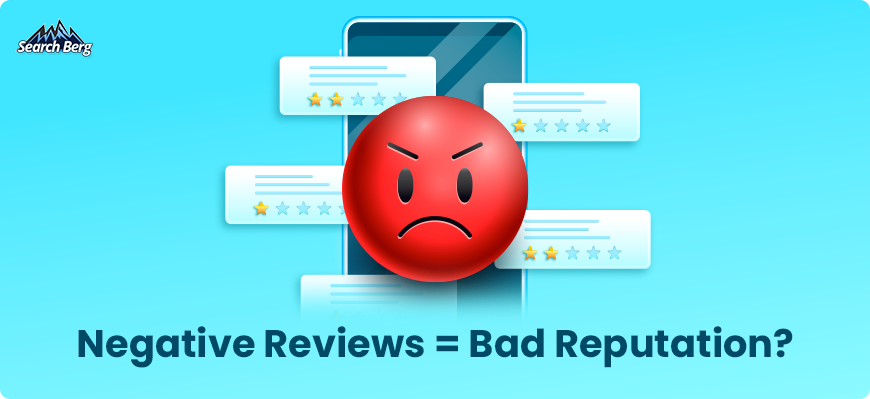
Recommended Read: How to Build A Good Reputation for Your Business That Will Entice Viewers and Create A Positive Brand Image
Understanding Negative Reviews
Before diving into fixing negative reviews, it’s crucial to understand their nature. Not all negative online reviews are created equal. Recognizing the different types is key to crafting appropriate responses and mitigating their impact on your brand reputation.
- Venting: These reviews often stem from genuine customer frustrations, but the language may be exaggerated or emotionally charged. While unpleasant, they can provide valuable insights into areas for improvement.
- Competitor Sabotage: Malicious reviews intentionally posted by competitors with the aim of damaging your brand reputation. These reviews are often devoid of legitimate customer experiences and can be difficult to address directly.
- Troll Reviews: These are intentionally disruptive and unhelpful, often containing abusive language or irrelevant information. Ignoring these reviews is usually the best course of action.
- Constructive Criticism: These reviews, while negative, offer valuable feedback with actionable insights. They highlight specific areas where your small business can improve its products, services, or customer service.
By carefully analyzing the type of negative review you’re facing, you can determine the most appropriate response and effectively manage its impact on your online presence. Remember, reputation management for small businesses and learning how to handle negative reviews professionally often involves a nuanced approach that balances customer satisfaction with brand protection.
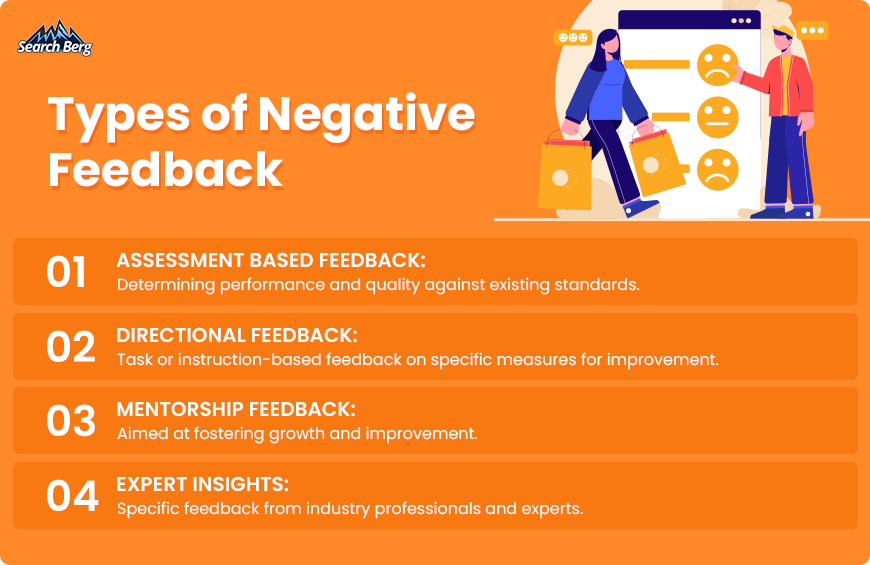
Recommended Read: Online Reputation Management And SEO: Is There A Link?
Common Reasons for Negative Reviews
Negative online reviews often stem from a range of underlying issues. Understanding these root causes is crucial for effectively fixing negative reviews and preventing future recurrences. Some of the most common reasons for negative reviews include:
- Poor Customer Service: Inattentive staff, long wait times, and unhelpful support channels can all lead to frustrated customers and negative feedback.
- Low-Quality Products/Services: When products or services fail to meet expectations – whether in terms of quality, functionality, or value – customers are likely to express their dissatisfaction through negative reviews.
- Unfulfilled Promises: Broken promises, whether regarding delivery times, product features, or service guarantees, erode trust and lead to customer disappointment.
- Unresolved Issues: When customer complaints and concerns are ignored or ineffectively addressed, it can lead to further frustration and ultimately, negative reviews.
- Rude or Unprofessional Staff: Unpleasant interactions with rude or unprofessional employees can significantly damage a brand’s reputation and lead to negative reviews.
Simply responding to a negative review without identifying the root cause is often ineffective. It’s crucial to go beyond surface-level responses and delve deeper into the customer’s experience. By understanding the underlying issues, small businesses can take proactive steps to address the problem, prevent future negative reviews, and improve overall customer satisfaction. This proactive approach is key to effectively “fixing negative reviews” and building a stronger, more resilient brand.
Strategies for Responding to Negative Reviews
As a business, it’s crucial that you work to address and respond to negative reviews, not fix them. What this means is, you need to address the root cause and show dedication and commitment to fixing the issue at its source, displaying commitment to change, and offering genuine, meaningful solutions to your customers.
Here are some strategies on how to handle negative reviews professionally:
1. Monitor and Track Reviews
In today’s digital age, online reviews play a crucial role in shaping consumer perceptions and influencing purchasing decisions. Therefore, proactively monitoring and tracking online reviews is essential for any business seeking to maintain a strong online reputation.
- Utilize review monitoring tools: Leverage a variety of platforms to effectively monitor your online presence.
- Google My Business: Regularly check your Google My Business profile for new reviews and respond promptly to any feedback.
- Social Media Platforms: Monitor reviews and comments on platforms like Facebook, Instagram, Twitter, and Yelp.
- Review Websites: Keep a close eye on reviews on industry-specific review sites, such as Tripadvisor and Glassdoor, among others.
- Set up alerts: Utilize the notification settings within these platforms to receive alerts whenever your brand is mentioned, reviewed, or tagged. This ensures you are aware of new reviews as soon as they are posted.
- Regularly check reviews: Conduct regular audits of reviews across all relevant platforms. This allows you to identify any emerging trends, recurring issues, or areas for improvement.
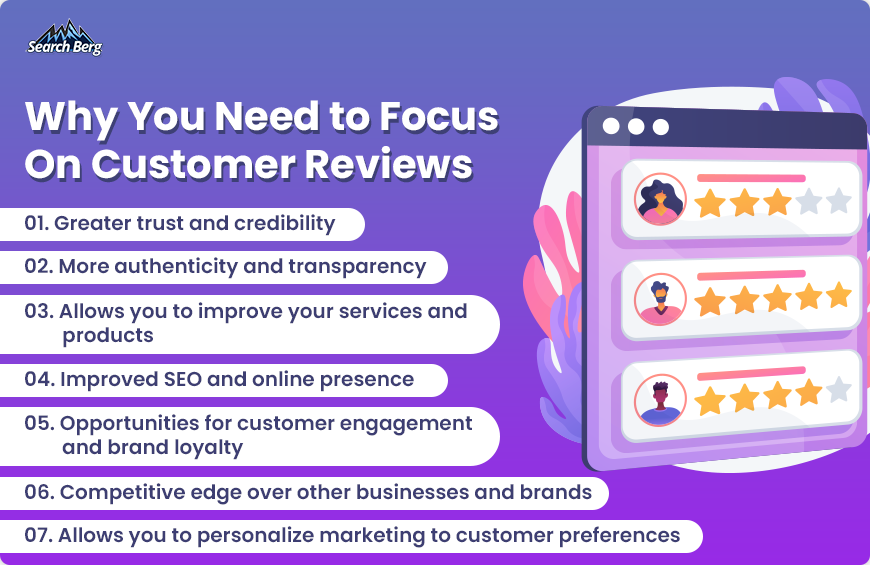
2. Respond Promptly and Professionally
When faced with negative reviews, it’s crucial to respond promptly and professionally. A timely and well-crafted response can demonstrate to both the reviewer and the broader audience that you value their feedback and are committed to resolving any issues.
- Acknowledge concerns quickly: Respond to negative reviews as quickly as possible. A delayed response can be interpreted as indifference or a lack of concern.
- Apologize sincerely: If the customer has experienced a negative experience, offer a sincere apology. This demonstrates empathy and acknowledges the customer’s frustration.
- Maintain a calm and respectful tone: Avoid defensiveness or blaming the customer. Even if you believe the criticism is unjustified, maintain a calm and respectful tone throughout the conversation.
- Avoid making excuses and skirting around the issue: Avoid making excuses or blaming the customer for their negative experience. This can further escalate the situation and damage your brand reputation.
- Personalize your response: If possible, use the customer’s name to personalize your response. This demonstrates that you are paying attention to their specific concerns and that their feedback is valued.
3. Take the Conversation Offline
While responding publicly to fix negative reviews is important, it’s often more effective to take the conversation offline to address the customer’s concerns directly and find a mutually agreeable resolution.
- Offer to resolve the issue privately: Encourage the customer to contact you directly via phone, email, or chat to discuss their concerns further. This provides a more confidential and comfortable environment for the customer to express their grievances.
- Provide clear steps: Outline the steps you will take to address their complaint and resolve the issue. This provides the customer with a clear understanding of the process and helps to build trust.
- Follow up with the customer: After taking steps to resolve the issue, follow up with the customer to ensure they are satisfied with the outcome. This demonstrates that you value their feedback and are committed to resolving their concerns.
4. Leverage Negative Reviews for Improvement
Negative reviews, while challenging, can be valuable sources of information for small businesses. By analyzing these reviews, small businesses can gain valuable insights into customer perceptions, identify areas for improvement, and refine their business practices alongside our reputation management services online.
- Analyze common themes: Carefully analyze the content of negative reviews to identify recurring themes and common pain points. Are customers consistently complaining about slow delivery times? Are there recurring issues with product quality?
- Implement changes: Based on the insights gained from analyzing negative reviews, implement necessary changes to address the identified issues. This may involve improving customer service training, enhancing product quality, or refining delivery processes.
- Refine business processes and policies: Use negative reviews to refine your business processes and policies to prevent similar issues from occurring in the future. This proactive approach can significantly improve customer satisfaction and prevent future negative reviews.
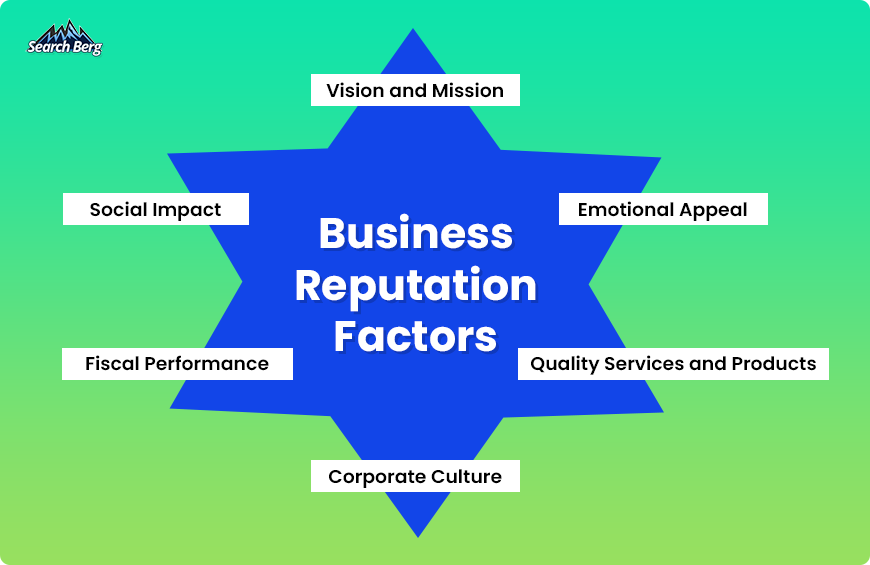
5. Encourage Positive Reviews
The most effective way to counteract the impact of critical online reviews is to actively encourage positive ones.
- Provide excellent customer service: Deliver exceptional customer service experiences that consistently exceed customer expectations. Happy customers are more likely to leave positive reviews.
- Gently remind satisfied customers: After a positive interaction, gently remind customers that their feedback is valuable. You can do this through email, in-person interactions, or by including a brief call to action on receipts or invoices.
- Offer incentives: Consider offering small incentives, such as discounts, loyalty points, or entry into a prize draw, to encourage customers to leave reviews.
By actively encouraging positive reviews, you’re able to develop one of the best approaches to reputation management for small businesses. Work to improve your online reputation, build social proof, and attract new customers and remember, positive reviews not only counterbalance negative feedback but also provide valuable social proof to potential customers.
Advanced Techniques for Handling Negative Reviews
While the foundational strategies for responding to negative reviews are crucial, implementing more advanced techniques can significantly enhance your ability to manage your online reputation.
1. Publicly Addressing Negative Trends
If multiple negative reviews highlight the same issue, it may be necessary to address these concerns publicly. This demonstrates transparency and a commitment to resolving the issue for all customers.
- Issue a public statement: Consider issuing a public statement on your website or social media channels acknowledging the issue and outlining the steps you are taking to rectify the situation.
- Publish a blog post: A blog post can provide more in-depth information about the issue, explain the steps you are taking to address it, and reassure customers that their concerns are being taken seriously.
Work with our online reputation management services, proactively addressing negative trends publicly, you can demonstrate transparency, build trust with your customers, and mitigate the potential for further damage to your online reputation.
2. Employee Training
Properly trained employees are crucial for effectively handling customer complaints and minimizing the likelihood of negative reviews.
- Customer service training: Invest in comprehensive customer service training programs that equip employees with the skills and knowledge to handle customer complaints effectively, both in person and over the phone.
- Online communication training: Train employees on how to respond to customer inquiries and complaints professionally and effectively on social media platforms and other online channels.
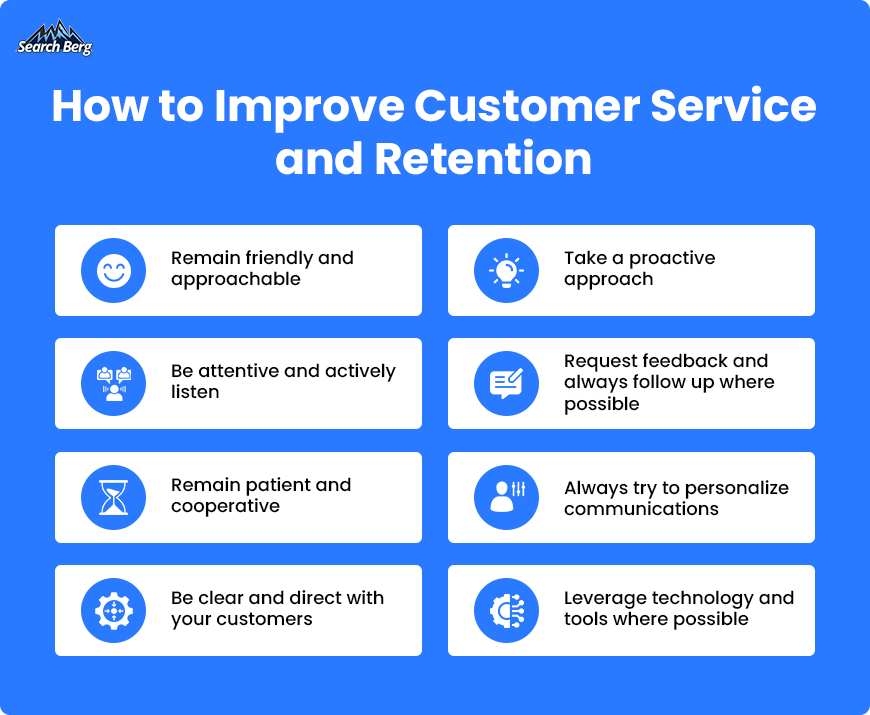
By empowering employees with the necessary skills and knowledge, small businesses can ensure that customer interactions are consistently positive and minimize the likelihood of negative experiences that could lead to negative reviews.
3. Reputation Management Tools
Leveraging reputation management tools can significantly streamline the process of monitoring and managing online reviews. If you’re unsure of how to go about this, here’s an overview of what we use when offering brand reputation services:
- Review monitoring software: Utilize specialized software to track reviews across multiple platforms, analyze review sentiment, and identify potential reputation threats.
- Social listening tools: Utilize social listening tools to monitor online conversations and identify any mentions of your brand, both positive and negative.
By utilizing these tools, small businesses can gain a deeper understanding of their online reputation, identify and address potential issues proactively, and ultimately improve their ability to manage reviews effectively.
4. Leveraging Customer Reviews for Marketing
While negative reviews require careful attention, positive reviews can be powerful marketing tools.
- Showcase positive reviews: Display positive reviews prominently on your website, social media channels, and in your marketing materials.
- Use customer testimonials: Incorporate customer testimonials into your marketing campaigns to build social proof and demonstrate customer satisfaction.
By strategically leveraging positive customer reviews, small businesses can enhance their brand credibility, build trust with potential customers, and drive sales.
5. Building a Strong Online Presence
Building a strong online presence is crucial for managing your online reputation and mitigating the impact of negative reviews.
- Create engaging content: Consistently create and share high-quality content that resonates with your target audience. This helps to build a positive online presence and establish your brand as a thought leader in your industry.
- Engage with your audience: Actively engage with your audience on social media and other online platforms. Respond to comments, answer questions, and participate in relevant online discussions.
- Build a strong online community: Foster a sense of community around your brand by encouraging customer interaction and feedback.
An essential element of reputation management for small businesses is having a strong online presence, businesses can create a positive online environment that can help to counterbalance the impact of negative reviews and build a loyal customer base.
By implementing these advanced techniques, small businesses can effectively navigate the challenges of online reputation management, transform negative reviews into valuable learning opportunities, and ultimately build a stronger, more resilient brand.
Recommended Read: 10 Ways to Build a Strong Personal Reputation For Individuals and Entrepreneurs
Let Our Reputation Management Pros Handle Negative Reviews—and More!
Negative reviews, while challenging, do not have to be a death sentence for your brand reputation. By understanding the different types of negative reviews, identifying their root causes, and implementing effective response strategies, small businesses can transform these challenges into valuable opportunities for growth and improvement.
Remember, fixing negative reviews isn’t about covering your tracks but rather, addressing customer concerns, demonstrating transparency, and building stronger relationships for long-term growth.
Proactive and customer-centric approaches to online reputation management are essential in today’s competitive landscape. When using these strategies, small businesses can not only mitigate the impact of negative reviews but also leverage them to build a stronger, more resilient brand that is trusted and respected by its customers.
Get in touch with us to learn more.
You’re only as strong as your weakest link!
Don’t Miss Out On More Online Reputation Management Tips
Get the best marketing tips, insights, and recommendations on managing your reputation online. We’re sharing the best tips and tricks from our online reputation management services.
No spam, just expert advice!












